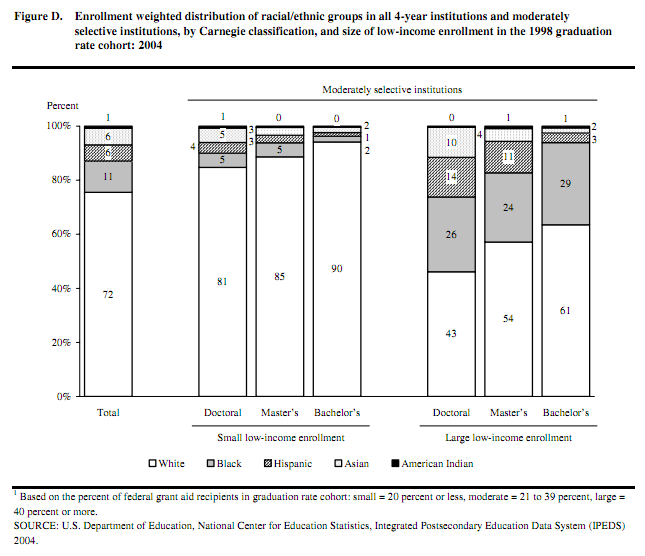
All about Online University Rankings
College and university rankings provide a valuable resource for prospective students. Rankings are based on surveys of recent graduates and companies to determine how well schools prepare students for career success. By assessing school rankings, you’ll find valuable information about an institution’s educational quality and reputation.
However, online degree programs are still relatively new to the educational arena. As a result, exact rankings are hard to come by. But that doesn’t mean they don’t exist or that online schools are not effective alternatives to traditional schools. It means you’ll need to find alternative sources to assess the academic quality of an online institution.
First Steps
Online schools are different from their traditional counterparts. Apart from the obvious reasons, online colleges and universities present unique challenges that students should consider before enrolling. Answer the following questions to ensure that distance learning is the right fit for your needs and goals:

- What is your learning style?
- What is your time schedule like?
- Are you self-motivated?
- Are you organized?
- Are you computer literate?
Online learning requires learners to work independently.
You’ll need enough time to dedicate to your studies.
Without a teacher looking over your shoulder, self-motivation is crucial to your success.
Being organized is one of the key characteristics of a successful online student.
Basic computer literacy is required to succeed as an online student.
Learning online can easy for some students and difficult for others. If you’re a parent, employee, and spouse, your role as a student is one more hat to wear. Make sure you’re prepared for online learning before you begin to conduct your research for an online degree.
How Rankings Are Determined
Rankings serve to provide an objective overview of a school’s educational programs, activities, admissions policies, faculty experience, scholarship and loan programs, and many other factors including:
- Graduation rate
- Student/faculty ratios
- Class size
- Student testing scores
- Peer assessment
You may discover that all types of rankings do exist, including lists that rate schools by faculty experience, tuition, financial aid, and other factors. Some rankings rate schools by major, while others focus on certain degree types. Some rankings are based upon registered students’ perceptions of their educational experiences.
Once you’ve compiled a list of prospective schools, it’s time to learn as much as you can about each college or university you’re considering. Rankings will help you compare schools and programs to find the right fit for you.
Research Methods
Several traditional college ranking sites are useful when researching online schools and programs. Such rankings might include online degrees or programs. For example, The Princeton Review includes some online colleges in its lists of colleges. A few tips will help you discover online school rankings within these types of publications:
- Visit college rankings sites to view top-rated online colleges or universities in your field. Some of these institutions may offer online programs, courses or degrees.
- Check the school’s accreditation status through the U.S. Department of Education’s College Navigator. Resources that match students with accredited online schools are invaluable, as accreditation is vital to a successful college experience.
- Research the accreditation agency to make sure their qualifying standards and systems are appropriate.
Review the organization’s methodology for ranking. - Look at more than one site to learn whether the college is listed elsewhere, and if another list offers more information. A list comparison can provide insights into the lists as well as to the colleges listed.
- Visit a school’s Web site to request information from the admissions office and to contact professors or current students.
NOTE: Rankings vary, and compilations can be partial or incomplete so make sure to research as many sources as possible. Don’t limit yourself to one source. Diversify your search to include a variety of sources and publications.
Online Education Ranking Sites
- Distance Education and Training Council: DETC provides a searchable directory that students can use to find institutions by name, category, state, country or subject. DETC, along with the College Navigator, can help determine a school’s accreditation status.
- U.S. News & World Report: Over the past three decades, U.S. News & World Report has become one of the most successful institutions at ranking colleges. As of 2011, U.S. News is applying its ranking criteria to online colleges. Currently, they offer a U.S. News University Directory that provides information about accredited online degree programs from top colleges and universities. Now students can use this resource to search associate’s degrees, bachelor’s degrees, master’s degrees, online MBA programs, doctoral and PhD degrees, and certificate programs.
Other Selection Criteria
You might learn more about the online program you choose by asking the following questions:
- Cost of the school: Can you afford the entire program yourself or through financial aid? What kind of financial aid assistance does that school offer, including federal, state, local, private and institutional financial aid programs?
- Convenience: If you need to take onsite courses, do you live close enough to the school to make this choice easier?
- Alumni: How many graduates found jobs, and where do they work? If you can find alumni who graduated in your specific program, all the better. You can learn more about what to expect when you graduate.
- Accreditation: Is the school program accredited, and is the accrediting agency reliable? You can check your options at College Navigator.
- Student Services: Can you receive reference assistance by phone, electronic forms, or email?
- Faculty: Learn about instructors’ academic and professional credentials to better understand their expertise. Also, learn what kind of response time you can expect if you have questions or problems.
- Program or Degree: How long has the school offered the online or distance education course you want? How many students have successfully completed that program?
- Credit-Earning Options: Will that school accept previous credits? Can you earn credit for prior learning gained through life or work experience by submitting a portfolio which demonstrates learning gained through the experience?
Subjectivity in College Rankings
Any metric for college ranking has multiple perspectives or even bias built into it. The graph below shows a comparison of graduation rates, an important school-quality metric, dependent on the school’s level of selectivity, service of low-income demographics, and racial makeup.

The way that an organization ranks colleges can only incorporate a limited number of factors, so if you are going to make a college decision based on rankings, you should look into how the rankings are derived.
Choosing the “perfect” online college or university might be impossible, but any number of programs might be a good fit for you and provide you with the degree you need. In all cases, the value of knowing that a school is accredited can help your search for a quality online experience. That knowledge, combined with rankings and personal insights, can go a long way in validating your choice.
/all-about-online-university-rankings